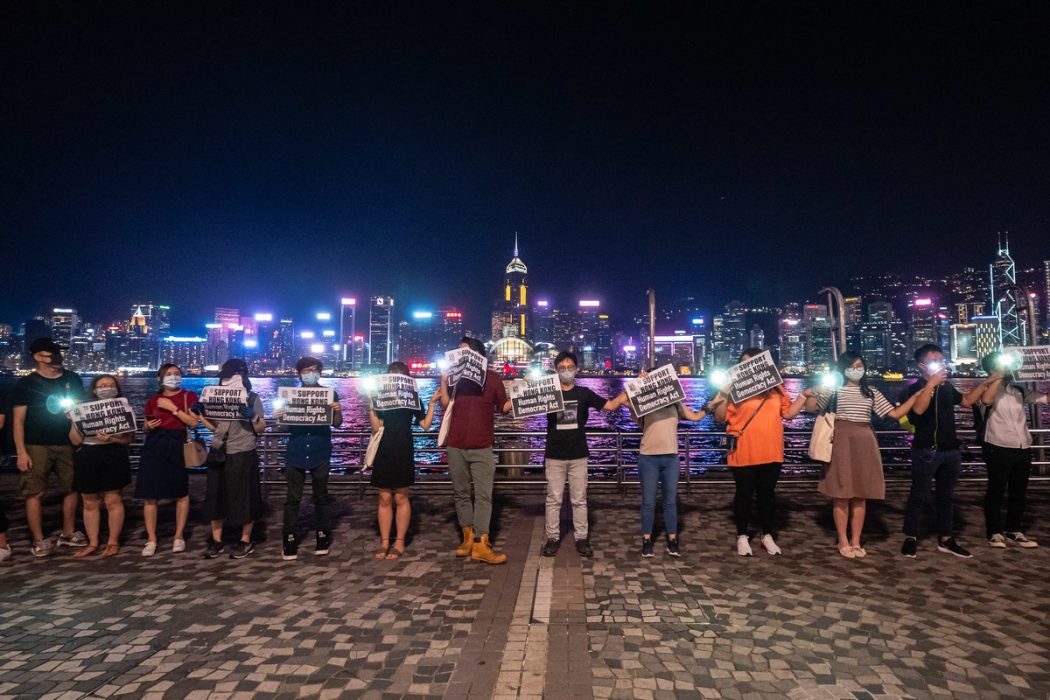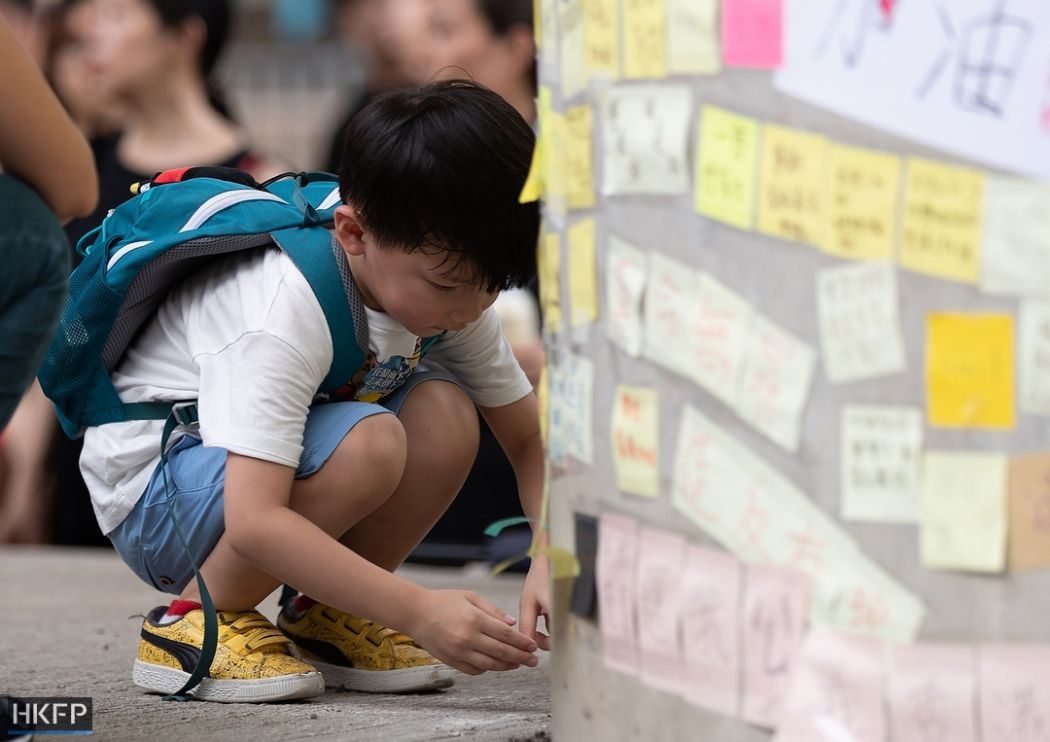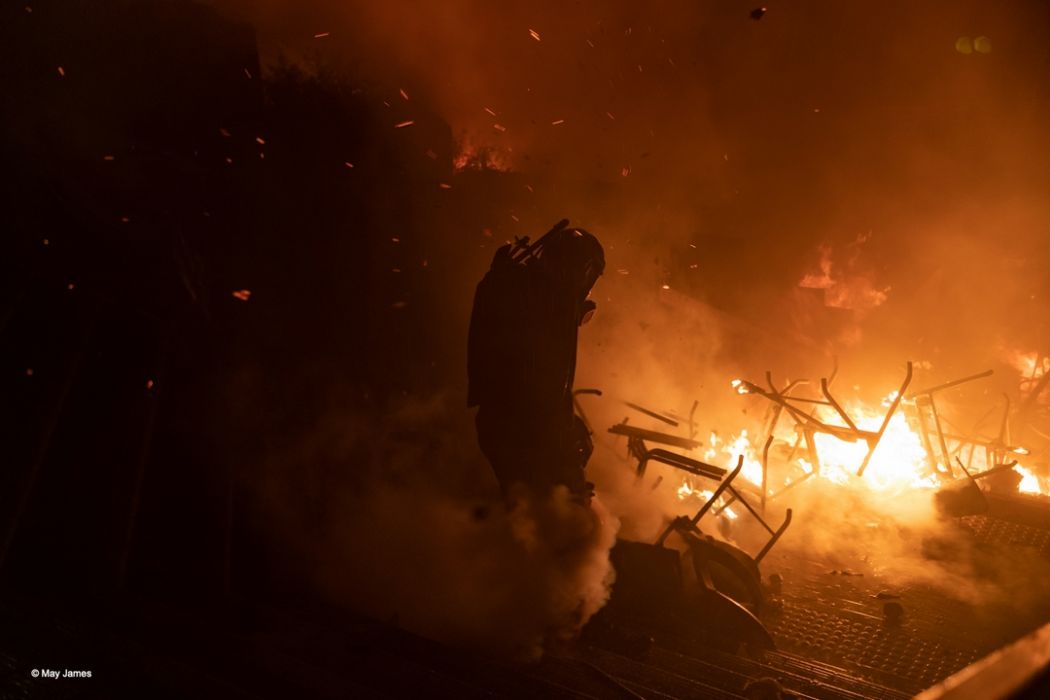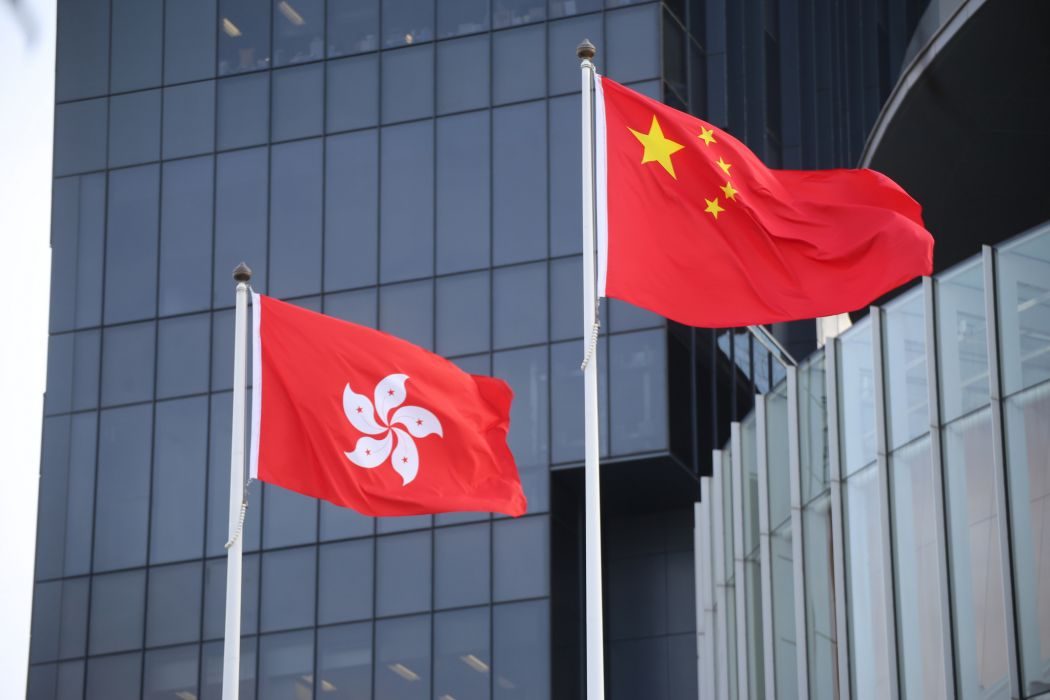By Sebastian Skov Andersen and Joyce Leung
“My desire to have kids has definitely fallen below zero. I can’t see a way out for Hong Kong, and I don’t want my kids to live in a place that has no future.”

Victoria Cheung is 29 years old. She works full-time as an assistant marketing manager but it’s not because she’s short on hours in the day or because she’s chasing a career that she doesn’t want to have kids. Over the last decade, she has witnessed first-hand as Hong Kong’s future — the city which set the stage for her own childhood — has gone astray.

Many young Hongkongers worry they’ll be stripped of their freedoms sooner rather than later. And now, as China looks to bypass Hong Kong’s legislative process and implement a national security law that many have argued could de facto upend the “one country, two systems” model, Cheung has lost all hope for a better future. She can’t offer her future children a life in that version of Hong Kong, she told HKFP.
“Every inch of Hong Kong is losing its distinctive culture and people,” she said, worried that she could not pass on the protesters’ “lion spirit” to her children:
“You protest, you get arrested, you get beaten up, and you get killed, and still nothing will change — so what’s the point?”
With more and more mainland Chinese moving to the city and increasingly many China-friendly businessmen in big chairs, she worries they will eventually be outnumbered in all crooks and corners of life in Hong Kong. She worries about the pro-Beijing government’s increasingly stubborn attempts to propagandise the educational system and confiscate the city’s democratic freedoms. More than anything, she worries that their offspring will not be taught to think critically — one of the characteristics Hongkongers value most in a person.

“Hong Kong’s freedom and independence is eroding quickly. Social unrest and protests have become a taboo in many schools, and students are being punished for protesting, voicing opinions, or going on strike,” Cheung added. “The kids may be brainwashed and eventually lose Hong Kong’s fighting spirit. If that happens, it will be the end for Hong Kong.”
In 2019, Hong Kong’s birthrate dropped for the first time since 2003, and the trend has continued into the current year. The drop is slight, however, and the rate has been fairly stable at about 1.10 children per person since the handover in 1997. The city already has one of the lowest fertility rates in the world, and many experts predict harsh consequences may be looming on the horizon if an upward turn on the curve doesn’t come about in the near future.
Adam Cheung, an assistant professor in family sociology and social demography at the Hong Kong Baptist University, said that whether the political climate would affect the city’s birthrate in the long term would depend on whether the current sense of political melancholy would persist in years to come. Often the fertility rate will drop for a limited stretch of years in times of crisis because people put their dreams and desires on hold until society is back on track, or until they can adjust to a changed society. Once things go back to normal, the birthrate does, too.

“The key question to me is whether young couples now think that ‘Hong Kong has changed forever’,” he said, adding that it would mostly affect segments who care passionately about politics. “If that’s the case, they may decide that having no children is best, but I do think there will be a rebounce in the future.”
A tipping point
For Billy Wong, a 32-year-old civil servant, the recent anti-extradition law protests were the tipping point. He knows now that children will not be a part of his future life unless some drastic changes come about in the near future.
“Our freedom and democracy have been quietly deteriorating for more than two decades, and Hong Kong is slowly turning into China,” said Wong. “This is one of the main reasons why many, like me, do not want to have kids.”
When Hong Kong’s ‘one country, two systems’ agreement with China is either abolished at some time in the coming months or years, or expires 27 years from now, the city will likely be officially absorbed into the Chinese political system under the rule of the central government in Beijing led by the Chinese Communist Party (CCP). If the political landscape on the mainland does not drastically change before then, Hong Kong’s people will be forced to surrender many of its much-treasured freedoms — the same ones that millions of protesters fought to protect over the last year.

Now, in wake of the approval of the national security law, optimism for a brighter future is in sharp decline. Especially so, too, seeing as the pro-Beijing government has moved to clamp down on the pro-democracy movement under cover of the coronavirus outbreak. Last month, the authorities detained 15 well-known pro-democracy activists and politicians in yet another warning to Hongkongers like Wong that the pro-China establishment is looking to suppress voices of dissent — and that no one can consider themselves wholly safe.
While Wong’s decision has been brewing for years — it snuck up on him as China snuck up on Hong Kong — he has been a long-time pessimist. He first made the call half a decade ago during the Umbrella Movement protests. Yet, at that time he considered himself open to a change of mind if things eventually turned around. That dearly held source of hope has since dried up entirely.
“Hong Kong holds a very uncertain and dreary future for the kids here. I feel very hopeless that we’ll get universal suffrage and that we’ll get to keep our freedoms. This is not a healthy society for a child to grow up in,” he said.

Wong, like many on Hong Kong’s pro-democracy wing, are worried that an increase in mainland Chinese migration to the city may eventually result in a full-blown population replacement and erasure of the values they consider unique to the city’s people — and in direct conflict with those of mainlanders. But unless there occurs a sudden mass influx of mainland immigrants, Wong needs not let the thought nag him, said Adam Cheung. The government has historically incited immigration to boost the economy and combat the city’s low birthrate, not to suppress Hongkongese identity.
“It is controversial, but we are already witnessing population replacement because the fertility rate has been low for so many years,” he said. “The immigrants may be less supportive of the democratic parties, but over time there will be a process of assimilation, and they may switch their political attitude. If the pro-democracy wing does their job right, they may just get them to vote.”
A survey carried out by Youth IDEAS in 2018, a subgroup of Hong Kong’s largest youth non-profit, the Hong Kong Federation of Youth Groups, found that two out of ten Hongkongers between the ages of 20 and 39 did not wish to have children. Most participants cited the cost of raising them, the responsibility of parenting, and housing affordability as their most weighing concerns.

Although the study didn’t include political climate as a statistical category, two participants were quoted mentioning Hong Kong’s future politically as a core factor in their decision-making.
“I don’t think I will have kids because the future of Hong Kong is not bright, especially the political and societal situations. I think our politics and freedoms will deteriorate, and if I have kids, that would be equal to torture,” one person told the researchers.
Beji Ho, a member of the research team that carried out the study, could not entirely rule out the impact of the political climate, he said in an email. They had not further investigated other factors.
A similar study carried out every five years by The Family Planning Association of Hong Kong, most recently in 2017, found that about a fourth of respondents considered the social environment at the time not suitable for raising children. 72 percent of women respondents currently without children said that enhanced quality of education would encourage them to have kids in the future.
Propaganda in education
One married couple, Ann Cheung and Ingram Leung, told HKFP that they had emigrated to Australia because they were worried their four children would not receive a good, unbiased education in Hong Kong. Ann, a retired teacher herself — now a stay-at-home mom — added that “we really don’t want our kids to grow up under Chinese rule.”

“In Hong Kong, my kids would grow up with a huge dilemma. They would love their city and want to change it for the better with a passion. Yet, at the same time they would grow up without hope and a feeling of powerlessness,” she said.
The pro-China government, influenced by the CCP, has made strong-willed efforts to permeate Hong Kong’s education system. It has been criticised on several occasions for attempting to introduce Orwellian-like history books and classes into the curriculum. In these, protesters are portrayed negatively, often as inherently antagonistic to a well-functioning society. One government-issued textbook referred to protesters as “rioters,” triggering public outcries as it openly challenged one of the pro-democracy movement’s five demands: for the government to retract the classification of protesters as rioters.
In a recent university admission exam, students said they had to “tread lightly” when answering a compulsory question about press freedom. The students were asked to answer a question which many later condemned for pitting press freedom against social responsibility. Many students told local media that they were hesitant to cite the anti-extradition bill protests, or any other politically controversial matter for that sake, because it could upset the marker on the other end and essentially affect the odds of admission if they did not agree with the applicant’s take.

Victoria Cheung, too, said that if she could one day afford to send her children to Europe for education, she would reconsider her decision. Either that, or if Hong Kong should one day become free and peaceful. Asked when she imagined that a possibility, she replied: “when the CCP is destroyed.”
An irresponsible decision
Some pro-democracy supporters are skeptic of those who have now chosen not to have kids. There is a dire need for children born to anti-Beijing parents, the sentiment goes. Otherwise, all hope for a free future is lost.
“We need to continue pursuing our fight,” said Ocean Cheung, a 22-year-old student. Protesters need to raise a new generation of fiery revolutionaries to whom they can pass the torch, or the protest movement’s efforts will be in vain. He too had once convinced himself having kids was morally irresponsible, he said. He now sees the choice as a symbol of bowing to Beijing’s power:

“We need to pass the fighting spirit onto our children. Hong Kong didn’t give up on us, so I will not give up on Hong Kong — my home country. I want the next generation to know about the ‘Glory to Hong Kong’-movement and why we fought. I want them to inherit Hong Kong’s fighting spirit, or our spirit will fade away,” he said. “That’s exactly what the CCP hopes will happen.”
While he wants his future children to grow up and join the protest movement, he shares many of the same worries that burden the minds of his pro-democracy fellows. He wants to give them a teenhood outside of Hong Kong, in a country where their intellectual development will not be spoiled by a defunct educational and political system. If he cannot afford to send them overseas, he will not have children either:
“I don’t want to ruin their lives,” he said. “Politically, Hong Kong is not a great place to grow up. I don’t want my kids to be brainwashed, I don’t want them to think they have to cry every time they see the Chinese flag.“

But Ann and Ingram’s fear is not that their children will be brainwashed. Rather, they’re scared they will see through the propaganda and harm themselves in the fight against China and the pro-Beijing government.
“Our fear is that they’ll grow up as critical thinkers. That they’ll know right from wrong and put themselves in danger,” Ann said, referring to the anti-China protests. “There’s a chant in Hong Kong that goes ‘if we burn, you burn with us’. I’m worried they’ll make that slogan come true.”
